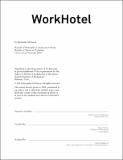| dc.contributor.advisor | Nader Tehrani. | en_US |
| dc.contributor.author | Dixon, Alexander M. (Alexander Mackenzie) | en_US |
| dc.contributor.other | Massachusetts Institute of Technology. Department of Architecture. | en_US |
| dc.coverage.spatial | n-us-ma | en_US |
| dc.date.accessioned | 2014-05-23T17:15:02Z | |
| dc.date.available | 2014-05-23T17:15:02Z | |
| dc.date.copyright | 2014 | en_US |
| dc.date.issued | 2014 | en_US |
| dc.identifier.uri | http://hdl.handle.net/1721.1/87139 | |
| dc.description | Thesis: M. Arch., Massachusetts Institute of Technology, Department of Architecture, 2014. | en_US |
| dc.description | This electronic version was submitted by the student author. The certified thesis is available in the Institute Archives and Special Collections. | en_US |
| dc.description | Cataloged from student-submitted PDF version of thesis. | en_US |
| dc.description | Includes bibliographical references (pages 116-119). | en_US |
| dc.description.abstract | The office has for decades been touted as a model of flexibility, the super-generic shell facilitating the ultra-customized fit out. However, as technology fuels a de-territorialization of the workplace and employees are untethered from their desks, the definition of flexibility must be rewritten architecturally beyond furniture systems, organizational methodologies or leasable space to encompass, and even prioritize, the potential of productive geographies over a singular workplace. Accelerated by the burgeoning sharing economy, increased telecommuting and pervasive, these new working territories extend to public and private institutions alike, challenging our present concepts of ownership and demanding a re-interpretation of the office typologically. This thesis sets out to take on that challenge, and re-imagines the office through the lens of the hotel, mapping the broader attributes of our contemporary working culture onto the hospitality industries highly calibrated temporal management system in a bid to displace the outmoded workplace with a new typological model, the WorkHotel. Engaging the growing trend of decentralization, the proposal seeks to create a platform for the new urban working culture, embracing globalization and the necessity of distributed workforce models. As a typological synthesis, the project speculates on how productive overlaps between the office and hotel reveal new opportunities for optimization through architectural strategies, while at the same time questioning our prevailing cultural distinctions between productivity and relaxation, work and play, and the inherent spatial manifestations that these concepts create. | en_US |
| dc.description.statementofresponsibility | by Alexander M. Dixon. | en_US |
| dc.format.extent | 119 pages | en_US |
| dc.language.iso | eng | en_US |
| dc.publisher | Massachusetts Institute of Technology | en_US |
| dc.rights | M.I.T. theses are protected by copyright. They may be viewed from this source for any purpose, but reproduction or distribution in any format is prohibited without written permission. See provided URL for inquiries about permission. | en_US |
| dc.rights.uri | http://dspace.mit.edu/handle/1721.1/7582 | en_US |
| dc.subject | Architecture. | en_US |
| dc.title | WorkHotel | en_US |
| dc.title.alternative | Work Hotel | en_US |
| dc.type | Thesis | en_US |
| dc.description.degree | M. Arch. | en_US |
| dc.contributor.department | Massachusetts Institute of Technology. Department of Architecture | |
| dc.identifier.oclc | 880134479 | en_US |
